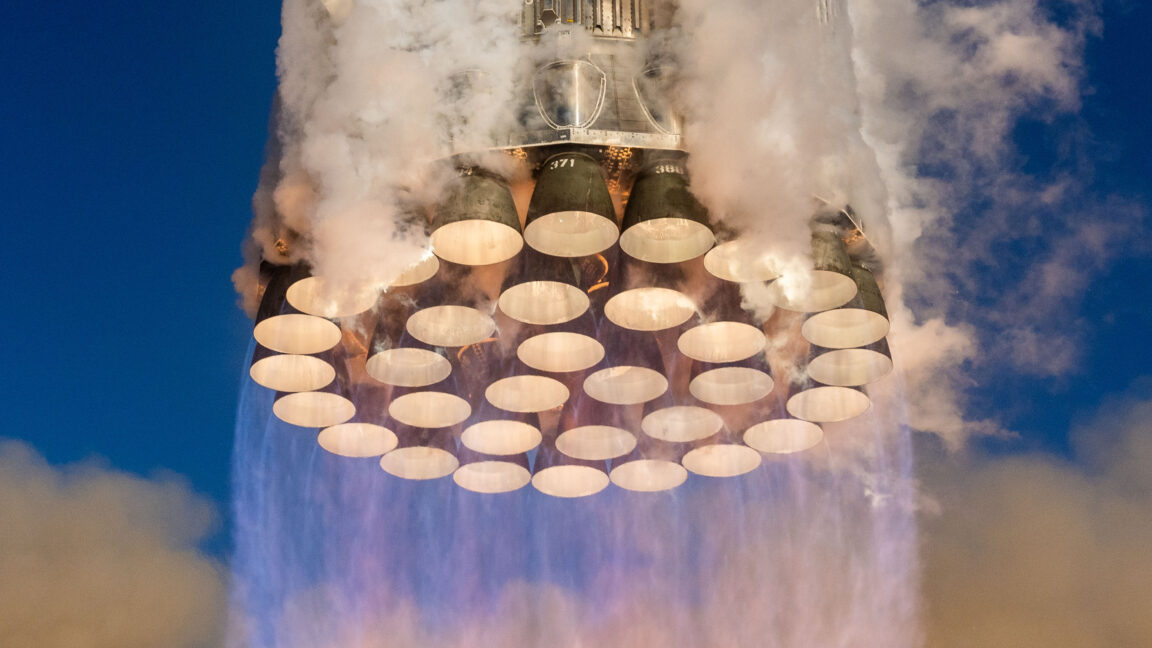Like the US Navy has long protected sea lanes during conflict, the military could be called upon to defend commercial satellites from attack, particularly as the Pentagon relies more on commercial networks for communication and surveillance, the Space Force's top general said last week.
In comments at a conference in Hawaii on September 20, Gen. Chance Saltzman echoed many statements made by military leaders over the last few years: US military space capabilities are under threat from China and Russia, military leaders need more information about what other countries are doing in space, and commercial satellites are playing an ever-larger role in the military's space programs.
But Saltzman went a little further in his comments when asked about the military's role in protecting commercial satellites from an attack. The questioner specifically asked how the US military might respond if Russia attacked SpaceX's Starlink broadband network, which Ukraine widely uses for Internet connectivity in its war with Russia, despite Elon Musk's refusal to allow Ukraine to employ Starlink services on certain military operations.
A valid military objective?
Saltzman didn't directly address the scenario posed in the question, but he clearly suggested the US military has a responsibility to defend commercial assets in space.
In a modern war, "there are going to be commercial entities, commercial organizations, commercial capabilities and assets that get caught up in the conflicts," Saltzman said. "Space is no different than sea lanes. It’s no different than civilian airliner traffic in Europe right now. The US has a long history of saying we’re going to protect the things that we need to be successful. So it would stand to reason that that same philosophy would extend into space, and I have no reason to believe that that will be different.”
A hypothetical military operation to defend a commercial satellite from an adversary's attack would likely go through US Space Command, a separate entity from the Space Force, which is charged with equipping and outfitting the military's combatant commands with the people and technology to carry out their missions.
Space Command is currently led by US Army Gen. James Dickinson. In July, Dickinson basically punted on a similar question about defending commercial satellites from a foreign attack.
"I do have a mission area protecting and defending, and that's widely known, assets on orbit," he replied. "But to be honest with you, those have to be directed to me by, you know, my boss, and my boss's boss, eventually if that were to happen."
Saltzman said last week that it would be up to Dickinson's command, and ultimately civilian leadership, to set the priorities on what commercial capabilities to defend from attack.
“The key will be how much capacity do you have to defend, and what are the things that you choose to defend at the highest prioritization," Saltzman said.
Last October, a deputy director in Russia's foreign ministry, Konstantin Vorontsov, said the use of Western commercial satellites by Ukraine established "an extremely dangerous trend." While Vorontsov did not specifically name any satellites, he almost certainly was referring to SpaceX's Starlink satellite constellation, which has been used by Ukrainian soldiers for communications and for tracking Russian troop and tank movements.
The use of civilian satellites for wartime purposes, Vorontsov said, essentially made them military targets. This was also the conclusion of Tara Brown, an officer in the Royal Air Force and a professor at the US Naval War College who specializes in space law.
In a paper published by the Lieber Institute at West Point, which focuses on the study of the law of war, Brown wrote last year that nations must be "cognizant of the risk of commercial satellite systems becoming valid military objectives."
In the case of Starlink, which the military has already procured for a range of operational and demonstration objectives, "the potential military value that Starlink could provide to the United States is indisputable," Brown wrote.
The Starlink network is owned and managed by SpaceX on a fully commercial basis. SpaceX has also developed a satellite design based on the Starlink platform, which it calls Starshield, for dedicated military missions.
A physical attack against the Starlink network would be a huge challenge for any adversary. SpaceX has more than 4,000 operational Starlink satellites in orbit, and shooting down a handful of Starlink platforms would have a negligible effect on Internet service. An attack on ground support infrastructure used for Starlink, such as SpaceX's satellite operations center or launch pads, is also seemingly far-fetched.
"The Starlink constellation is a valid military objective, but, as for Russia targeting it, a kinetic attack levied against an entire constellation would be of such a scale that it is difficult to imagine the attack would not run afoul of the principle of proportionality," Brown wrote.
However, the threat of a cyberattack is real. SpaceX and Pentagon officials have said the Starlink network has already faced Russian jamming attempts.
Russia isn't the only potential threat. China possesses more advanced capabilities in space that could be used to attack US military or commercial satellites, like Starlink, in the event of a future conflict, such as a war over Taiwan (it's important to point out there's no love lost between Elon Musk and Taiwan's leadership).
"Chinese defense-affiliated researchers have called for the development of vigorous countermeasures, including kinetic countermeasures, for use against Starlink," Brown wrote. "The United States military will wish to preserve and protect the utility of Starlink, and avoid a situation in which China employs such a capability."
When to buy commercial
At the same event in Hawaii, Saltzman outlined how the Space Force is revising its commercial space strategy to more clearly delineate what capabilities the military can acquire from commercial companies and which areas should remain under the government's responsibility.
Commercial space companies are "indispensable partners" for the military, Saltzman said. "I think it’s my job, it’s the Space Force’s job, to kind of set the vision, outline the guidelines, and make sure that we’re all kind of operating from the same vision. Otherwise, it becomes a lot of ad hoc projects and everybody trying to sell things and work together, and it’s a little messier. So I feel like guidance has to... come from the top to... organize the effort.”
He said a preliminary draft of the Space Force's commercial space strategy didn't go far enough in guiding military decision-makers on where to go with commercial providers and where to keep military capabilities in-house.
“As I was reading through it, I said, 'This is not enough,'" Saltzman said. "It can’t just be a strategy with aspirational platitudes about how we’re going to work together.
"I started to ask some questions amongst the staff, like, 'What is the appropriate division between those services which commercial industry can provide, and those services which have to be inherently governmental because of the nature of the effort, the nature of the consequences that come with it?' Quite frankly, there aren’t a lot of easy answers there."
One example of the latter, he said, was nuclear command and control. "I think there are few people here that would argue that when it comes to ... using communications capabilities to control our nuclear force, you rely on your military to take care of that," Saltzman said. "That’s the most assured way to do it, and we do that.
"So what are the other things that are inherently governmental, that we really need to say this is an organic military responsibility because of how critical it is? We haven't defined those yet."


